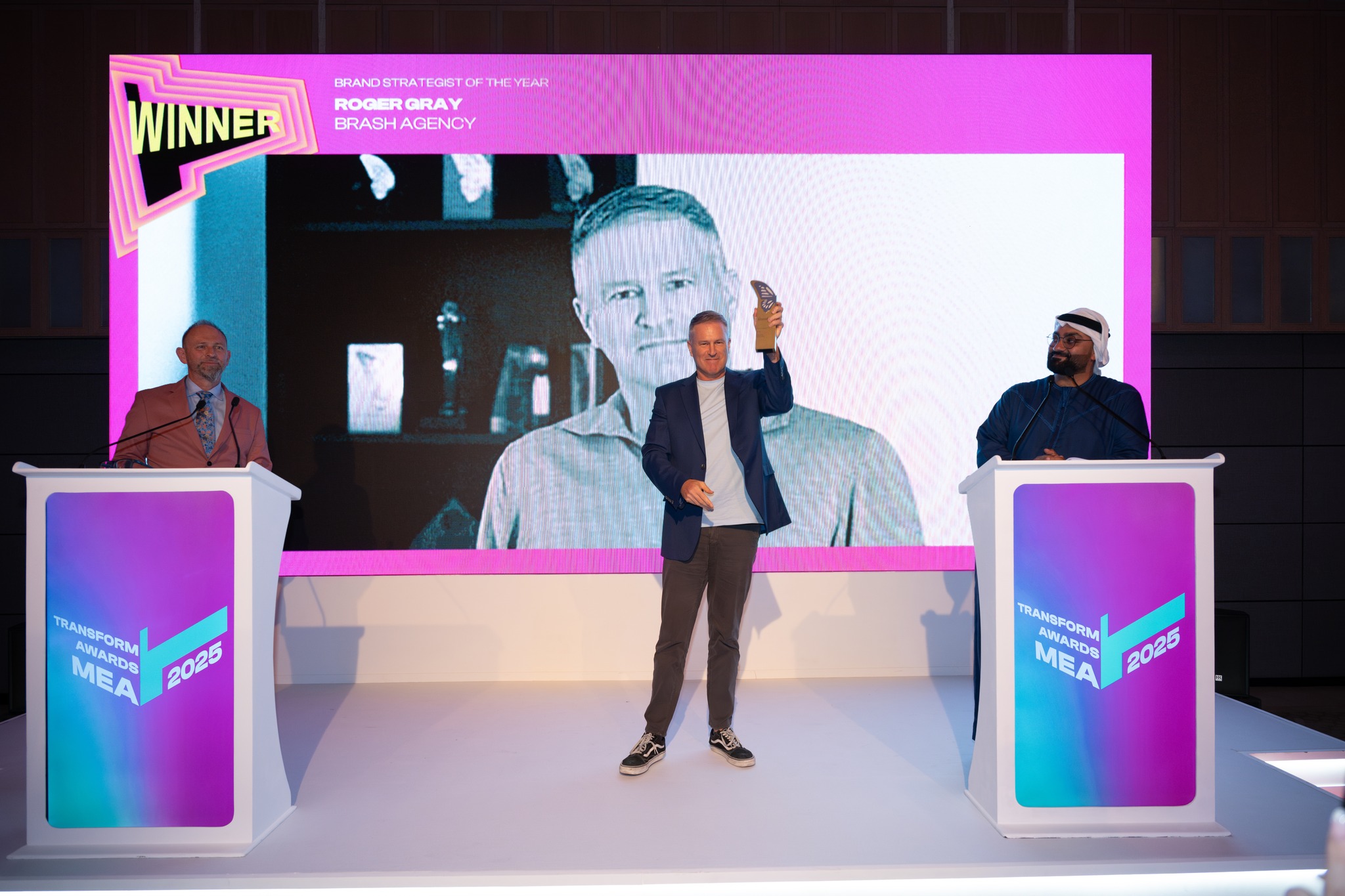John featured in this weeks designerati, in a Q&A, sharing his experience, insight and vision of both the current and future business role for design and creativity today. Read below of John’s thoughts, from the creative characteristics a business needs to key success factors that drive business growth in the Middle East and Europe.
Connecting with people together with a strong motivational drive helps to create a successful business. How does this play out within your business or role?
As I work in the creative industry, it’s important for me to connect with people who share the excitement of shaping new ‘realities’. As creatives, we see new opportunities for creation every day with the eagerness of not yet knowing what is or could be.
The value and success of my business is driven by a clear common purpose and belief, coupled with the insights I gain through my personal relationships – with my senior team, partners, clients and other business owners. The quality of these insights rely on the diversity and authenticity of my relationships. It enables me to connect the dots and identify unique opportunities for my business and that of our clients – to evolve and grow.
What are the key success factors that have driven business growth in the Middle East and Europe?
Whenever you start a business in a new country, you have to embed yourself in its culture. For example, the UAE in particular is a very friendly business environment, but you have to be aware of the regional customs and ways of working.
You need to listen and observe first before acting, in order to gather cultural affinity. This gives you the ability to read diverse stakeholders, get under the skin of their challenges, find the right approach to connect, inspire and provide a relevant solution.
This is critical when building relationships in the Middle East as it takes more time to gain trust. Despite the glam and glitz in Dubai, for example, you can’t expect to make a quick buck there. Building brands in the region will only ever be a successful business strategy if you create them with the region in mind. Equally, an understanding of local needs should be deployed alongside a global but fresh benchmark perspective.
Whenever I do business, whether in the Middle East or Europe, I always follow Brash’ core beliefs – brave, sharp and personal. These qualities were deep-rooted in my Scottish upbringing and are still present in my style and approach to any business challenge. Being bold enough to experiment and improvise, sharp enough to take calculated risks at times and personal enough to adapt, communicate and engage with new surroundings has helped me drive my business forward.
What important creative characteristics does a business need in order to remain competitive?
In erratic and unprecedented times like now, I would say that businesses need the ability to adapt and recognise changing consumers needs and behaviors. The market is overcrowded with ‘problems and challenges’ and those who would purport to solve them – you need to truly differentiate yourself and offer a focused solution. Being able to analyse and understand your industry is essential, but leveraging left-field insights and ideas from other sectors is invaluable. Such lateral, conceptual thinking can bring fresh creative approaches to a challenge.
To remain competitive, you should never accept mediocrity – leaders should aim for being remarkable and constantly challenging the status quo, and of course, improving along the way. Always ask yourself ‘why’, ‘how’ and ‘so what’ in order to bring a fresh perspective to the challenges you’re facing.
Last but not least, you must invest in the most important asset you will ever have – your team. The ability to collaborate and mix people with different strengths and skillset to work together will not only challenge your ways of working, but improve your performance. This is where the magic happens!
How is the importance of taking a customer-centred approach in luxury residential and hospitality design a key factor?
When working in the luxury residential and hospitality sector, we often connect with Ultra High-net-worth Individuals (UHNWI), so meeting their expectations whilst providing tailored approach is critical.
At Brash, we put the customer experience at the heart of our processes, especially when designing marketing suites as these customer journeys allow us to translate visions into virtual realities. Creative technology has become a really important enabler of not only the experience but also the customers’ history of engaging with that brand. Digital printing now also means that traditional media forms such as brochures can be tailored to specific sectors and profiles and add a tangibly luxurious touchpoint to the experience.
With a residential sale, for example, each conversation is fully informed by those that preceded it. It also helps us to plan their experience well-ahead of their arrival at the venue. By finding out their preferences and engaging them in advance, we can ensure each journey is bespoke well before the traditional ‘start point’ of the experience.
By taking a customer-centred approach, we are able to create authentic experiences that speak to the building, location and individual, in order to create moments of surprise and delight. You’re not just providing an experience; you’re co-creating it – and therein lies the distinction for the UHNWI individual.
What is the future of destination branding and marketing in a post-Covid world?
Even though people are impatient to go on a holiday (including me!), traveling won’t be normalised for some time. As safety and security become more of a decision criterion when selecting destinations, information and transparency will be key. Destinations shouldn’t adopt a “back to as it was before” approach, but instead actively acknowledge that things are different, and then continuously communicate with the public to provide reassurance and up-to-date advice.
Apart from safety messaging, destination brands need to work harder on defining their unique positioning – what do they offer to tourists? Clarity on positioning will be key to providing unique location-based experiences – e.g. Dubai is more than “sea, sun and shopping”, it has other engaging activities to offer such as arts and adventure. On the other hand, London is a melting pot of culture – from high culture to street culture, arts and authenticity, to innovation, design, expression and gastronomy. All brand touchpoints should be considered to amplify such messaging, from brand films to influencers (where appropriate).
Remote working will also play a role in destination marketing post-Covid. With a lot of businesses implementing flexible work policies, we will probably see a rise in the “work from anywhere” experiences and the emergence of long-term visitor or semi-resident visas. This will create a whole new market within the travel industry, which brands must be ready to capitalise on.
Even when the travel restrictions are eased, not all people will go on a holiday straight away. It’s very likely that staycations will continue to grow as an alternative, as some destinations (e.g. Australia) are considering border control for some time. As such, appealing to your domestic market will remain absolutely crucial to destination brands.


